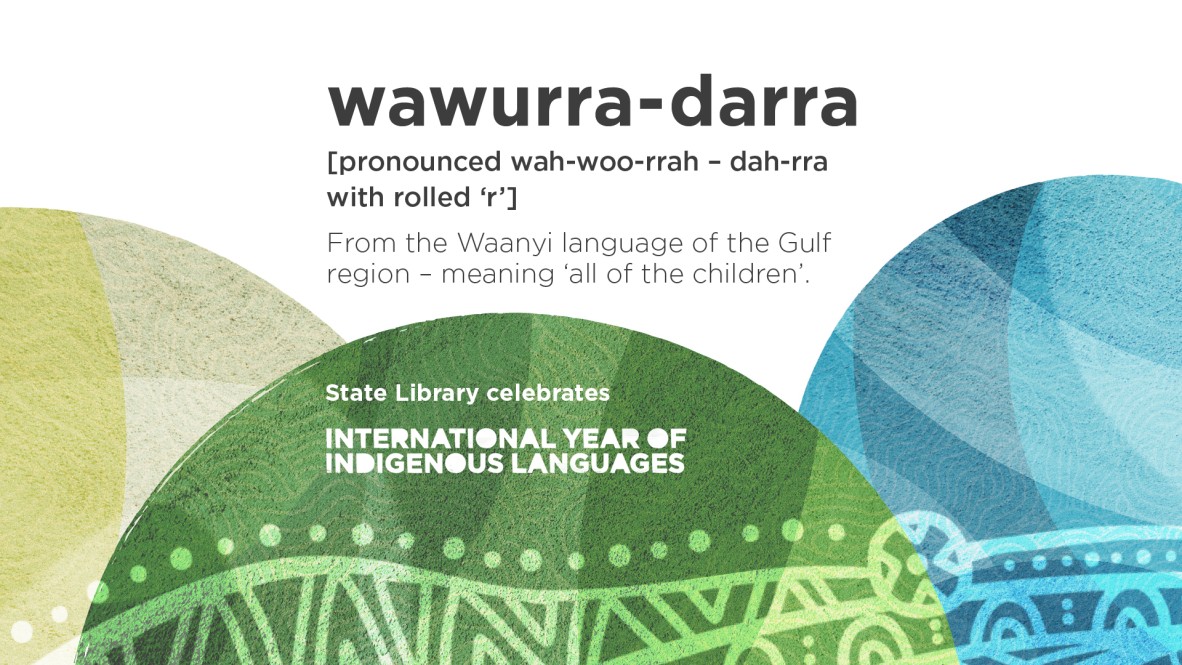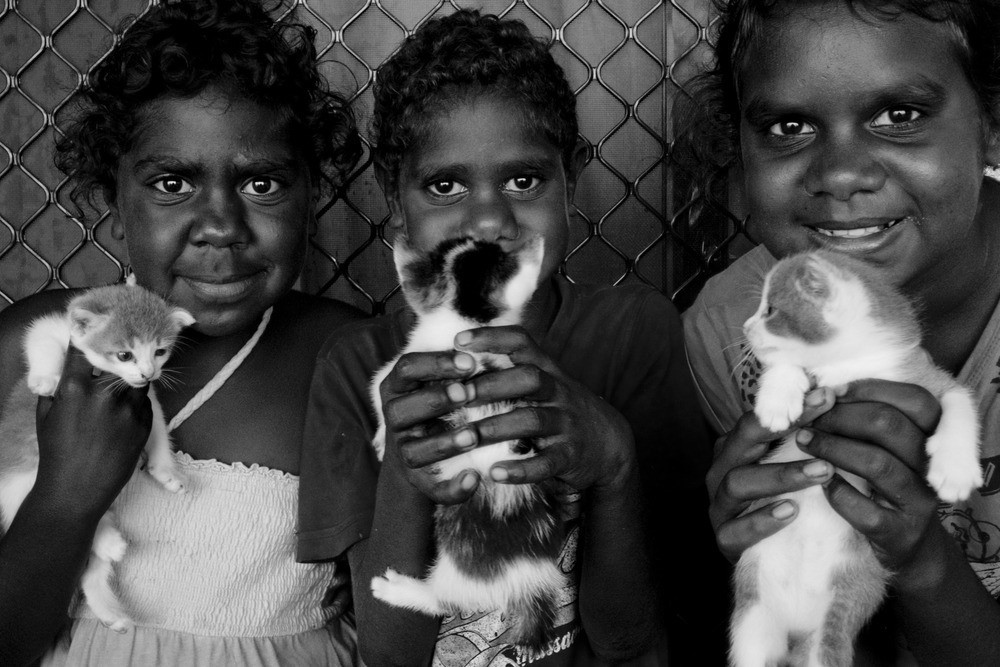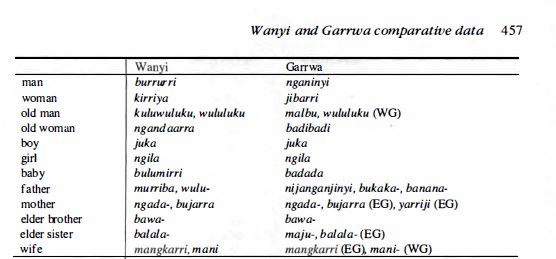2019 International Year of Indigenous Languages: Word of the Week - Week Thirty-One.
By administrator | 30 July 2019
As part of State Library's commitment to the 2019 International Year of Indigenous Languages, we will be promoting a 'word of the week' from one of the 125+ Aboriginal and Torres Strait Islander languages and dialects from across Queensland.

This week’s word is wawurra-darra , from the Waanyi language of the Gulf Region. This week's word means 'all of the children' and coincides with Aboriginal and Torres Strait Islander Children's Day which is celebrated on held on 4 August.
Children’s Day is a time for Aboriginal and Torres Strait Islander families to celebrate the strengths and culture of their children.

Waanyi also known as wanyi, wanji, wanyee, etc. is spoken along the Nicholson River and Lawn Hill Creek catchments and includes the community of Doomadgee.

As highlighted in the table above, it is closely related to Garrwa which is its' northern neighbour along the Gulf coast towards Borroloola on the NT Border. There are community members with language knowledge, particularly in Doomadgee Community; however, Waanyi is classed as endangered and community revival efforts are supported by the North Queensland Regional Aboriginal Corporation Language Centre.

State Library of Queensland invites you to celebrate the 2019 International Year of Indigenous Languages as we raise awareness of the rich diversity of Queensland’s Aboriginal and Torres Strait Islander languages.
Join the conversation as we post a new word for each week!
Week Thirty-One 30 July - 5 August 2019.
#IYIL2019 #IYIL #IY2019WordoftheWeek #SLQIndigenousLanguages
Desmond Crump
Indigenous Languages Coordinator, State Library of Queensland
State Library of Queensland Aboriginal and Torres Strait Islander Languages Webpages
State Library of Queensland Aboriginal and Torres Strait Islander Languages Map
Jarjum stories: A kuril dhagun showcase focusing on children’s books and Aboriginal and Torres Strait Islander languages. Opens 19 October 2019.
Spoken: celebrating Queensland languages: A major exhibition exploring the survival and revival of Aboriginal and Torres Strait Islander languages throughout Queensland. Join in the many talks and events to celebrate the rich and diverse languages spoken today. Opens 21 November 2019.
UN IY2019 Links
UN International Year of Indigenous Languages webpages
UN International Year of Indigenous Languages Resources
References
The word of the week has been sourced from the following historical item in the State Library collections.
Source: Breen, J.G. (2003) 'Wanyi and Garrwa comparative data' in N Evans (ed.) The non-Pama-Nyungan languages of northern Australia. J 499.15 NON
Image:
Three young children each holding a kitten, Doomadgee, Queensland, ca. 2008-2014. Image number: 30818-0003-0007
Further Reading
Other materials in the State Library collections relating to Waanyi and neighbouring languages include the following:
Breen, J.G. (2003) 'Wanyi and Garrwa comparative data' in N Evans (ed.) The non-Pama-Nyungan languages of northern Australia. J 499.15 NON
Holmer, N. Notes on Some Queensland Languages. J 499.15 HOL
Mushin, I. (2012) A Grammar of (Western) Garrwa. J 499.15 MUS
Roth, W. E. (1898-1903) “Reports to the Commissioner of Police and others, on Queensland aboriginal peoples 1898-1903.” FILM 0714
Websites
National Aboriginal and Torres Strait Islander Children's Day website
North Queensland Regional Aboriginal Corporation Language Centre.
Comments
Your email address will not be published.
We welcome relevant, respectful comments.